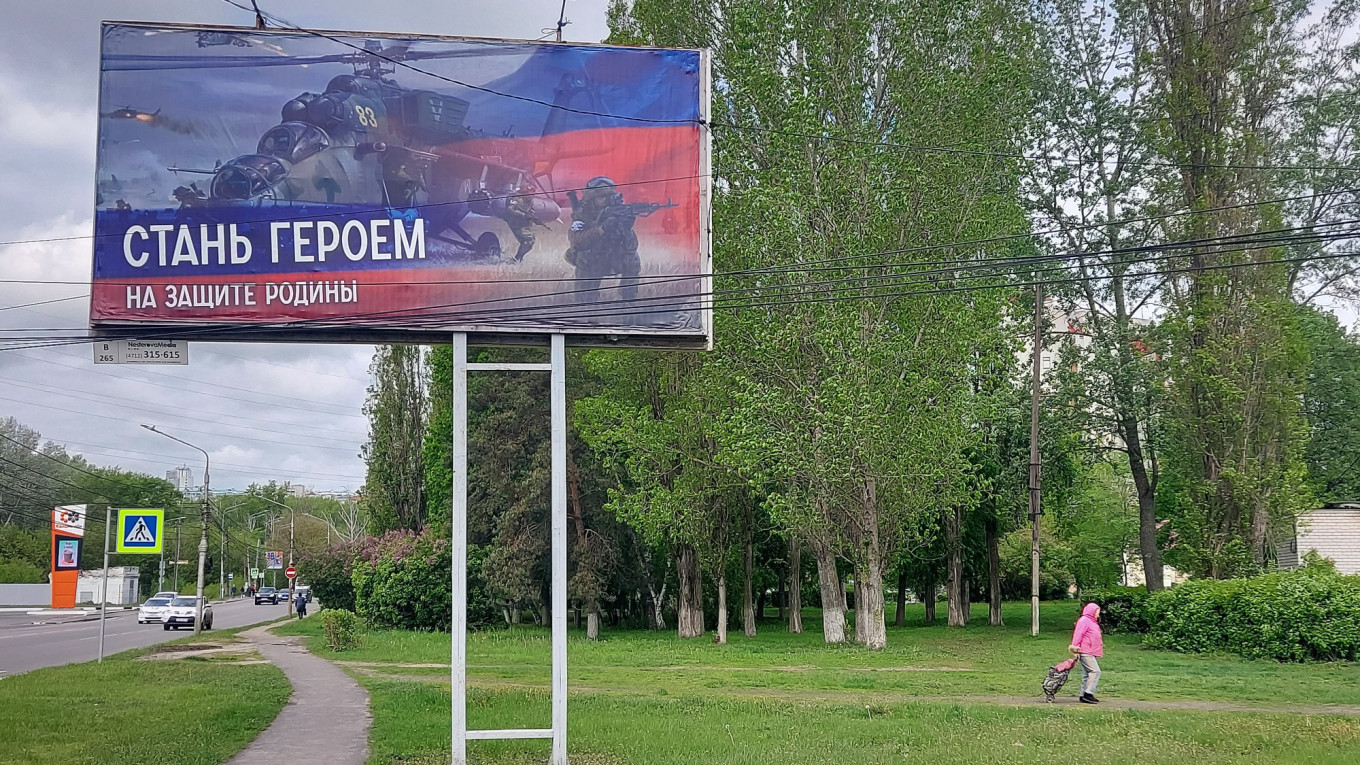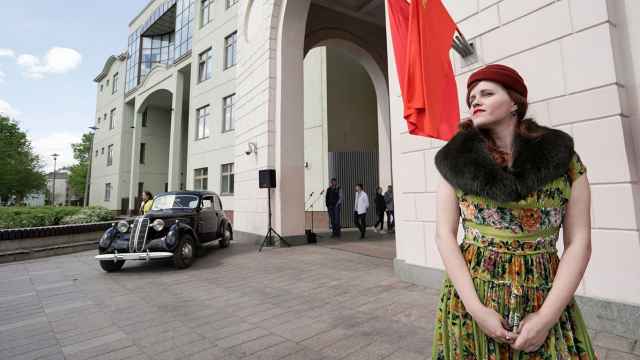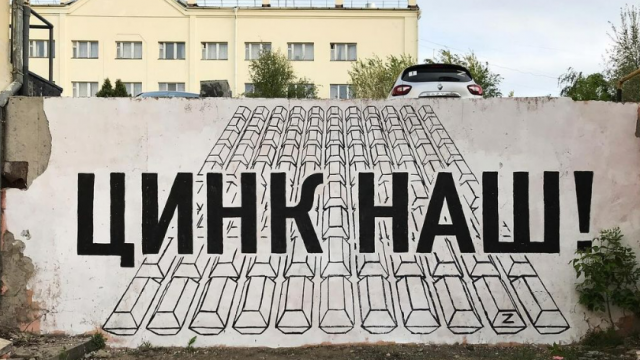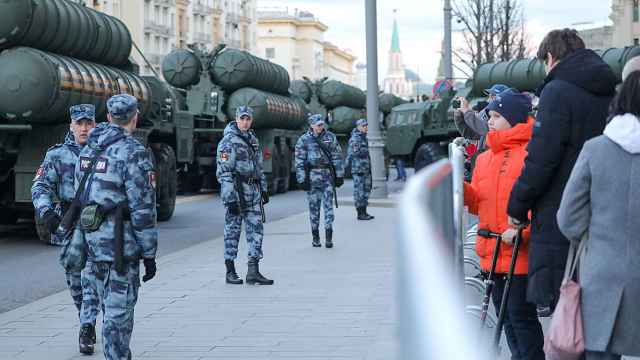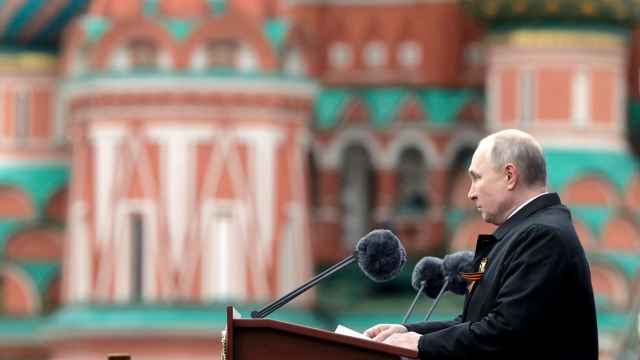KURSK, Russia — The main World War II memorial complex in this western Russian city was fenced off and guarded by dozens of police officers on Tuesday morning as celebrations marking the 78th anniversary of the Soviet defeat over Nazi Germany got underway.
Visitors who came to lay flowers were carefully checked with metal detectors.
The occasional roar of military jets sounded in the distance — likely heading to the fighting in Ukraine, just over 100 kilometers away.
“Considering the current situation, unfortunately there is no other way: the threat is real,” Oksana, 35, an office manager who came to the memorial to lay flowers and who requested anonymity, told The Moscow Times.
“Our government is taking care of our safety.”
Russia’s annual Victory Day celebrations have been drastically scaled-down this year amid heightened security threats following attacks on railroads, oil facilities and the Kremlin last week. At the same time, fighting in eastern Ukraine has intensified ahead of a long-anticipated counteroffensive by Kyiv’s forces.
The Kursk region, which borders Ukraine, was one of at least 10 Russian regions to cancel traditional Victory Day military parades.
Instead, subdued events, such as flower-laying ceremonies and small concerts, took place across the city on Tuesday.
“People are living in a state of tension, you feel it in the air,” said Dmitry, 28, a physiotherapist who was walking up Lenin Street, the city’s main thoroughfare.
“We understand that something could go wrong on Victory Day.”
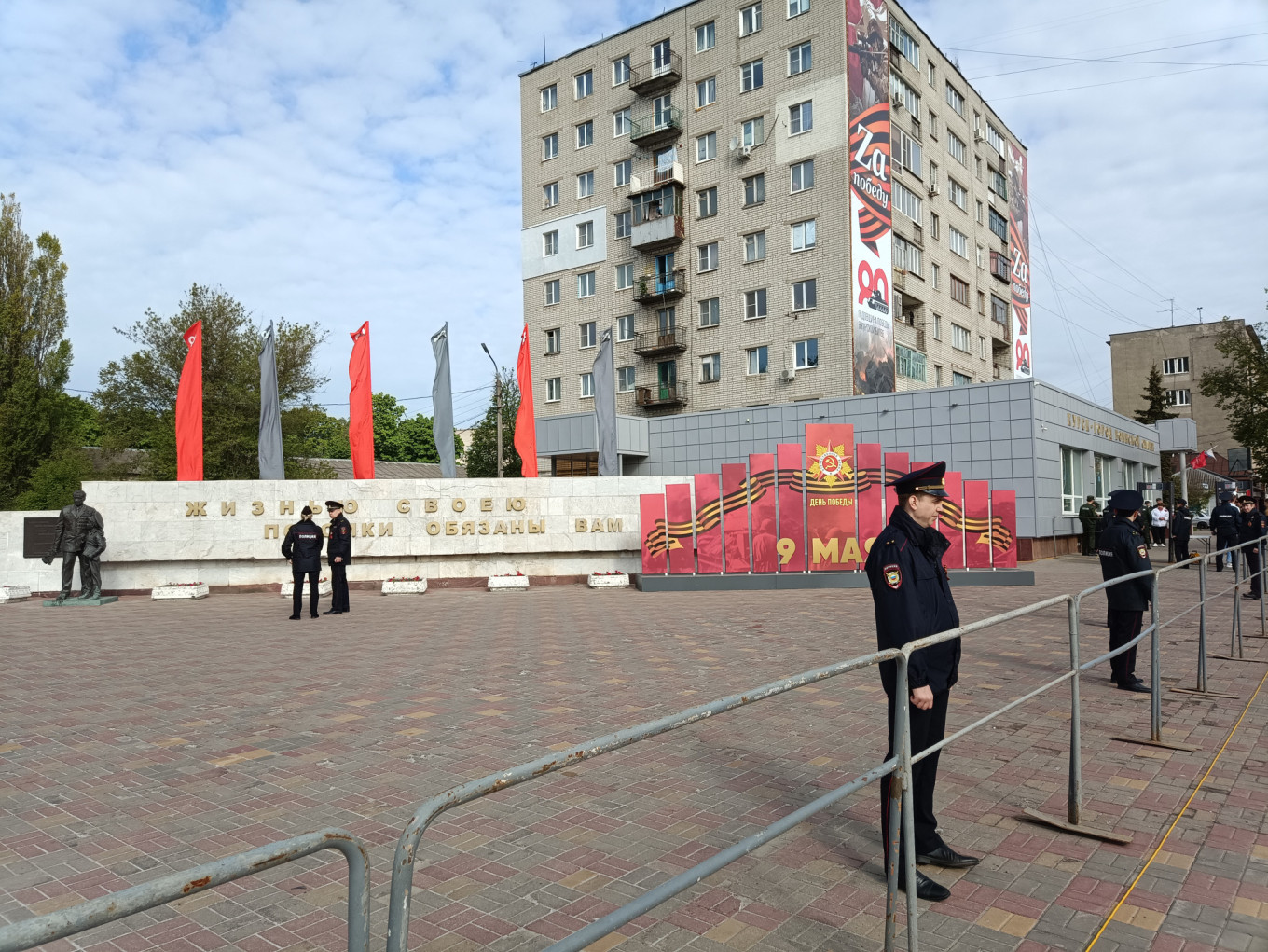
With the city’s parade now canceled, Dmitry said that he would spend the day at home with his family.
Locals appeared divided about whether troops and military equipment should have marched through the streets despite the risks.
“They shouldn't have canceled the celebrations. For me, it’s a sign of weakness in the face of our enemies,” said Pavel, 38, a procurement specialist who traveled from Moscow to visit his wife’s parents.
However, Yevgeny, an athlete visiting Kursk from the nearby Krasnodar region, disagreed.
“They were right to cancel the parade,” he told The Moscow Times. “There are many enemies who could commit acts of terrorism.”
Along with all other regions in Russia, Kursk this year did not hold an Immortal Regiment procession — a popular event in which Russians march through cities with portraits of family members who participated in World War II.
Instead, the authorities encouraged people to hang pictures of their relatives in their windows.
While the Kremlin has traditionally sought to use Victory Day to project an image of geopolitical might and to foster patriotic fervor, recent military reversals in Ukraine have made this a much harder task.
In 14 months of fighting, Russia has been unable to make the kind of sweeping territorial gains in Ukraine for which it initially hoped, and tens of thousands of Russian soldiers have been killed. The frequency of attacks on Russian territory — for which Kyiv denies responsibility — is also on the rise.
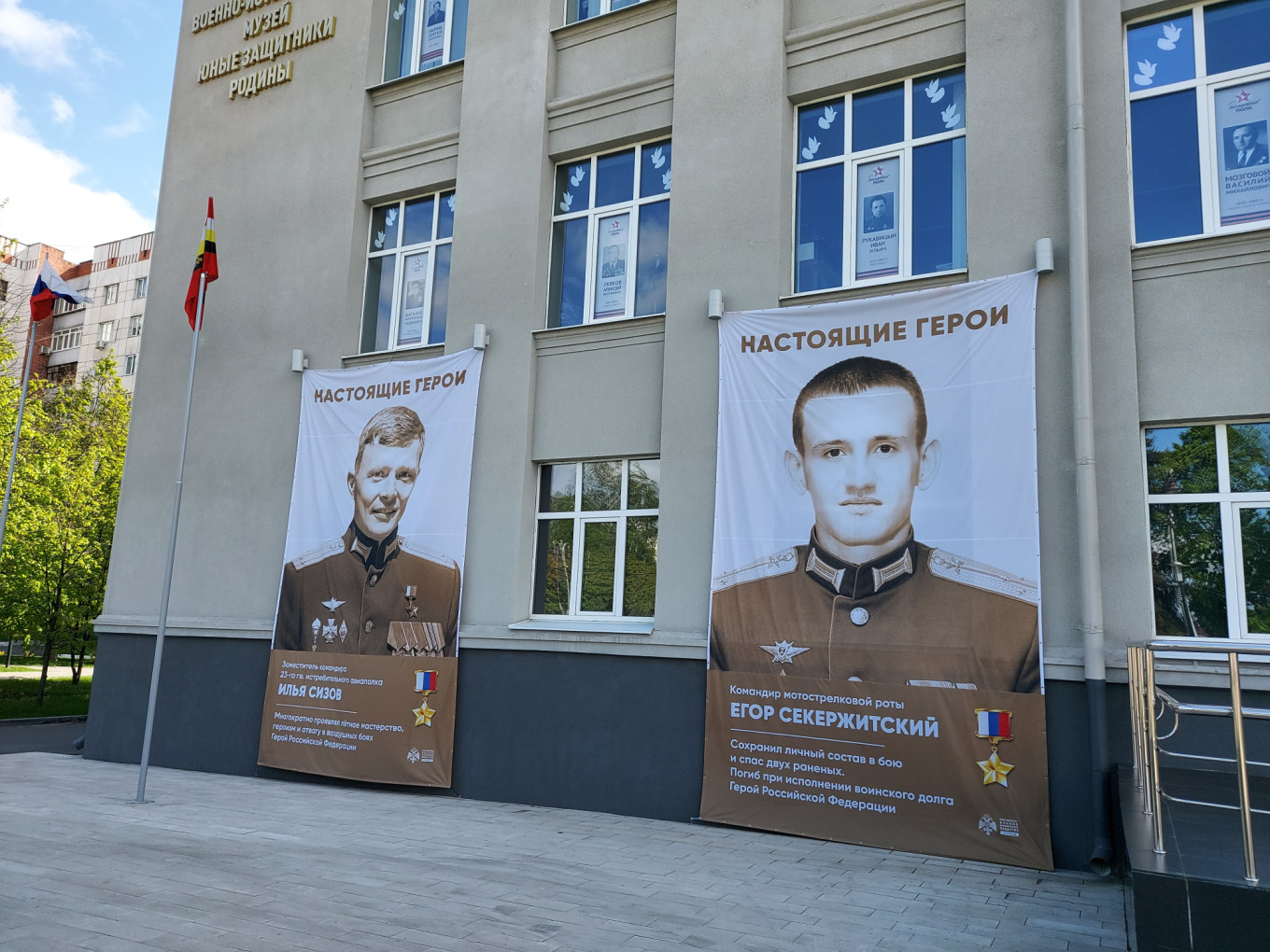
The Kursk region alone has experienced 159 attacks since the beginning of the war, including artillery shelling of villages near the border and drone strikes, according to Russian business daily Kommersant.
In one notable incident, oil storage facilities near Kursk’s airport were set alight by a drone attack in December.
To protect the region, local authorities last year set up a territorial defense unit made up of volunteers. Extensive fortifications have also been built along the border with Ukraine.
Despite the tensions, downtown Kursk was decorated ahead of May 9 with Soviet flags, St. George's ribbons — a symbol of the Russian military — and portraits of war veterans alongside photos of Russian soldiers fighting in Ukraine and billboards advertising military service.
“Become a hero by defending the fatherland,” read one poster. “The soldier of Russia is our hero,” read another.
In a speech delivered on Red Square on Tuesday, President Vladimir Putin conflated the Soviet Union’s battle against Nazi Germany with Russia’s war in Ukraine, alleging that a “real war has again been launched against our motherland.”
Some in Kursk expressed confidence in Russia’s Armed Forces.
"Our soldiers are great. They don't allow anyone with bad intentions to get close to our cities," Mariya, a thirteen-year-old girl, told The Moscow Times.
Both Mariya and her friend Yana were wearing military caps and had St George ribbons stitched on their uniforms in the shape of a pro-war “Z.”
Mariya, who was also waving a Russian flag, said they had just taken part in a military march organized by their school.
Across the street, a large screen displayed footage of the war in Ukraine while dramatic music played in the background.
“The general atmosphere is not very festive and there is tension, but pride remains for our boys fighting at the front,” Mariya said.
In the absence of large public events, many Kursk citizens have been more focused on private acts of remembrance.
Earlier this week, Anna, 44, was visiting the grave of her husband, Dmitry, who was killed in Ukraine, and laid to rest in Kursk’s main war memorial complex.
His body lies near those killed in past conflicts, including World War II, in a cemetery decorated with flowers and colorful flags, including the blue-and-green flag of Russian paratroopers and the black-red-and-gold insignia of Wagner mercenaries.
“May 9 is a very bitter holiday for us,” said Anna.
On Victory Day last year, Anna carried a photograph of her husband through the city center. However, she said that this year she will just lay flowers on Dmitry’s grave.
“I'm sorry for all the dead people on the other side and for our guys too,” said Anna with tears in her eyes.
“But unfortunately we can't do anything about it,” she said. “We don't see an end.”
A Message from The Moscow Times:
Dear readers,
We are facing unprecedented challenges. Russia's Prosecutor General's Office has designated The Moscow Times as an "undesirable" organization, criminalizing our work and putting our staff at risk of prosecution. This follows our earlier unjust labeling as a "foreign agent."
These actions are direct attempts to silence independent journalism in Russia. The authorities claim our work "discredits the decisions of the Russian leadership." We see things differently: we strive to provide accurate, unbiased reporting on Russia.
We, the journalists of The Moscow Times, refuse to be silenced. But to continue our work, we need your help.
Your support, no matter how small, makes a world of difference. If you can, please support us monthly starting from just $2. It's quick to set up, and every contribution makes a significant impact.
By supporting The Moscow Times, you're defending open, independent journalism in the face of repression. Thank you for standing with us.
Remind me later.



